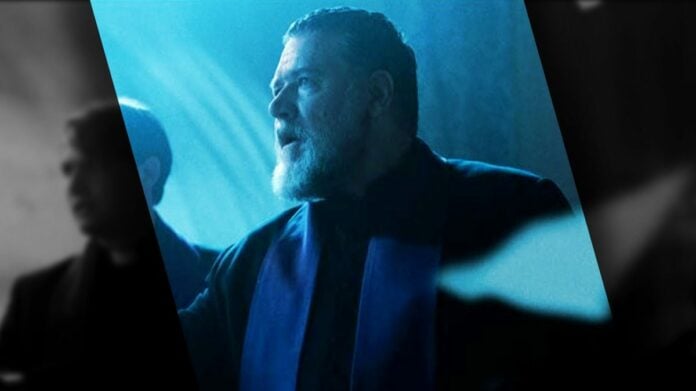Gabriele Amorth, a Vatican exorcist with a deep understanding of demonology, is known for having performed more than 50,000 exorcisms in his lifetime, often on the same individuals who had been possessed multiple times. Amorth did not, however, exorcize everyone who professed to be possessed. Despite his belief in the existence of the Devil and God, he understood the importance of scientific and medical support. He did not execute exorcisms in situations of psychiatric problems; instead, he urged the afflicted to consult a doctor. Despite his strong religious beliefs, he did not try to displace scientific treatments. He concentrated his attention on the minority who were genuinely possessed by evil since he thought that many of those who sought his treatment for possession were actually in need of mental health treatment.
In the movie The Pope’s Exorcist, Amorth is shown as a realistic, intellectual person with a far-ranging understanding of what good and evil are. Earlier in his life, he served in the Italian resistance during World War II, thus, it’s probable that these experiences influenced his subsequent beliefs about the reality of evil since the brutality of war had exposed to him what evil truly is. Amorth devoted his life to performing exorcisms and advancing the practice within the Catholic Church because he believed in the existence of evil and the ability of Christianity to defeat it. Starring Russell Crowe as the cool-headed Vatican exorcist Gabriele Amorth, the movie explores his exorcism ideas and practices. But in addition to focusing on Amorth, the movie also fictionalized a number of other true events.
Spoilers Ahead
Who Is Rosaria In The Film? What Happened To Emanuela Orlandi?
Emanuela Orlandi, a young girl from the Vatican, mysteriously vanished in 1983, and her case remains unsolved to this day. Rosaria, a character in the movie “The Pope’s Exorcist,” stands in for the ambiguity surrounding Orlandi’s disappearance. Orlandi was allegedly abducted for sex parties by the Vatican police, according to Father Amorth, who is featured in the movie, but the truth remains in the shadows. Rosaria is shown in the movie as having undergone sexual abuse at the hands of someone who worked for the Vatican, which caused her to become possessed by a demon. She seeks assistance from Amorth, who first assumes she needs psychological assistance rather than an exorcism. Amorth subsequently learns that Rosaria really has been possessed by the demon, which ultimately leads her to commit suicide. The character of Rosaria might have been possessed by Asmodeus, who later possessed Henry. Due to her traumatic experiences of sexual abuse, which Rosaria was too vulnerable to forget about, her mind became an inviting place for evil. In one scene, Rosaria states that the devil used to fornicate with her, indicating that she may really have suffered abuse by someone from the Vatican. Emanuela Orlandi’s story is a heartbreaking and tragic reminder of the ongoing issues with abuse and cover-ups within the Catholic Church.
Father Amorth’s View Regarding The Spanish Inquisition
During the Spanish Inquisition, the Catholic Church in Spain intensified its efforts to track down and persecute people who were seen to have deviated from the Church’s beliefs, especially those who were Jews and Muslims. In “The Pope’s Exorcist,” Father Amorth discovers an unsettling revelation while attempting to drive Asmodeus from Henry’s body. He finds a secret cellar in the abbey, where he discovers that Asmodeus had the Pope under his control throughout the Spanish Inquisition. The devil, who intended to spread evil throughout the entire world in the name of God, had taken possession of the Pope, who used to be a master exorcist. In this respect, real-life Father Amorth believed that the Church had truly been infiltrated by evil.
Father Amorth also said that both Stalin and Hitler were under the control of devils. Amorth made a claim about these famous historical figures being possessed by evil in one of his books, “An Exorcist Tells His Story,” which historians and scholars do not generally accept. Amorth’s notion of demonic possession has been disproved because these historical tragedies were caused by political ideology and individual decisions, although some individuals find these beliefs fascinating. The movie has also exercised creative freedom to explore this hypothesis. The depiction of Asmodeus’ attempts to infiltrate the Church by taking over Amorth’s body in the film illustrated this concept.
Final Words
The Pope’s Exorcist is a well-made horror film with good performances, particularly from Russell Crowe, who brings a certain charm to the role of the cool-headed Vatican exorcist. The film’s storyline is interesting and occasionally hilarious, which contributes to dark and satirical entertainment. Peter DeSouza-Feighoney, the child actor who played the role of Henry, in particular, had an outstanding turn and did a great job of capturing the wicked demonic imprint on his face as well as executing the humorous attitude. Overall, “The Pope’s Exorcist” is a fun horror film that presents an intriguing perspective on the exorcism and paranormal worlds, often mixing real-life horror with fiction.
However, it is crucial to remember that “The Pope’s Exorcist” is fiction and shouldn’t be interpreted as anything close to an accurate depiction of the real-life events it addresses. While some of the elements in the film—such as the method and ideology regarding the exorcisms of demonic possession carried out by Father Amorth—are inspired by true stories, other aspects, such as Henry’s possession or Amorth being possessed by the demon, are entirely works of fiction. As “The Pope’s Exorcist” is going to be a horror franchise in the making, it is probable that the makers will continue to illustrate more fictional works that are based on actual people and occurrences. Even though such works can be thought-provoking and appealing, it is crucial to view them critically and look for reliable information and historical context to distinguish reality from fiction.

